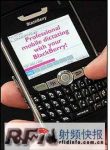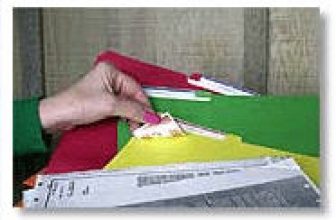
The German judicial department uses RFID to manage audio case data
[ad_1]
In North Rhine-Westphalia, Germany, as many as 15,000 judicial departments will soon be equipped with RFID systems, using passive RFID high-frequency electronic tags to manage paper case files and folders, and also adopt this technology Manage dictation audio case files.
Thax Software Company is an RFID software supplier, and has provided many law firms, government agencies and financial institutions with Findentity systems using RFID technology. Recently, the company supplied this technology to the North Rhine-Westphalia court by way of open tender.

RFID system developed by Thax to manage audio files generated by BlackBerry devices
In February 2004, Thax began to implement RFID dictation module trials in the District Court of Detmold. The Detmold court was the first institution in Germany to stop analog dictation cassettes and change digital audio files.
Since testing in 2004, Detmold has gradually increased the number of digital dictation files that use RFID technology to manage and save. Currently, 50 Detmold judicial institutions have applied the RFID dictation system.
After the RFID dictation module is integrated with Thax’s Findentity system, the staff can transfer case materials and place the folder on a desktop RFID reader similar to a mouse pad for identification. This system is constantly updated based on the location, and employees can accurately determine the location of a specific folder and its files.

The Findentity system uses a desktop RFID reader similar to a mouse pad to identify the labeling folder
To obtain the electronic files related to the case, the staff can put the folder on the reader pad, and then use Thax’s software to open the related electronic files on the computer desktop. Lawyers or legal assistants can use Philips, Grandi or Olympus handheld professional recording devices compatible with Thax software to obtain information on specific cases.
If RFID is not used to identify the specific folder involving the dictation file, the staff can only transfer the dictation file to a common folder containing many audio files. Then store these dictation files in the relevant computer folder that contains other case materials. When RFID technology is used to identify the folder of a case, the audio files will be directly transferred to the appropriate electronic folder, and the staff will also reduce the time to find the corresponding dictation files.
Currently, Detmold has labeled 5,000 paper folders and documents. By emptying the folder for reuse, or moving the labeled paper documents to another folder, RFID tags are recycled. These tags are produced and sold by RAKO Security Label. The tags are suitable for 13.56MHz, contain the Icode chip provided by NXP Semiconductors, and implement the ISO 15693 standard.
After the company’s tender, at least 600 courts will be equipped with this digital dictation system this year. In addition, the court can also choose to use the RFID technology in this system to link the dictation file with other electronic files. It is expected that in the second phase of the project to start next year, there will be 15,000 desktop computers using RFID to manage dictation files.
Thax founder Mark Bash declined to disclose the cost of the Findentity system and the RFID dictation module. Mark Bas said that the company has also developed a module that converts a BlackBerry handheld computer into a dictation device. Thax has now developed a system that matches the ID numbers on the physical folders and file labels with the digital dictation files generated by the BlackBerry device, and finally uploads them to a desktop computer.
This system requires a mobile RFID reader to read the ID number on the folder or file tag. “Unfortunately,” Bash said, “There is currently no way to provide direct RFID functionality for BlackBerry smartphones, so a separate mobile RFID reader is needed.”
[ad_2]




